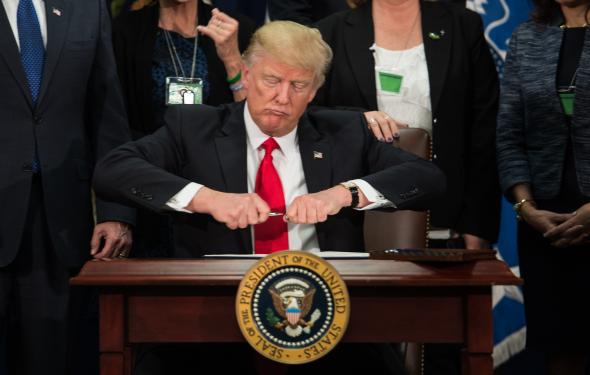Hours ahead of his first national address to Congress, Donald Trump, in an off-the-record meeting with a handful of TV news anchors, indicated that his administration could reverse itself and is open to granting legal status to undocumented immigrants in the U.S. who do not have a record of violent crimes. “The time is right for an immigration bill as long as there is compromise on both sides,” Trump told reporters Tuesday, according to CNN. For a president that ran an uncompromising campaign on the promise to build a wall between the U.S. and Mexico, and who issued executive actions in his first week in office that called for a “deportation force” and the “detention of aliens apprehended for violations of immigration law,” the change in tone couldn’t be starker.
“The president is eager to pass a compromise immigration bill in his first term that would stop short of granting a path to citizenship for millions of undocumented immigrants but would allow undocumented immigrants who aren’t serious or violent criminals to live, work, and pay taxes in the U.S. without fear of deportation,” a senior administration official told CNN Tuesday. “And Trump is now considering adding the topic to his speech Tuesday night before his address to a joint session of Congress.” Administration officials indicated that Dreamers—undocumented immigrants who came to the U.S. as young children—could be granted a pathway to citizenship.
Democrats in Washington remained skeptical despite the reversal. During the campaign, Trump occasionally veered away from his hard stance on criminalizing and deporting undocumented immigrants, but it was always short-lived, which was not surprising given the general incoherence of Trump and his campaign on most issues. It’s unclear what motivated the shift in rhetoric from the White House and whether it is actually a sincere shift in policy-making or a setup of some sort with an endgame that’s even more unclear at this point.
